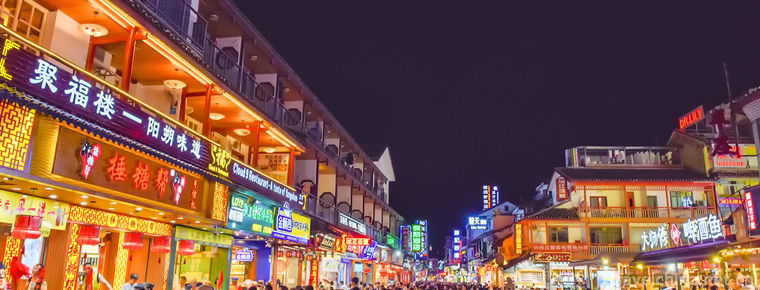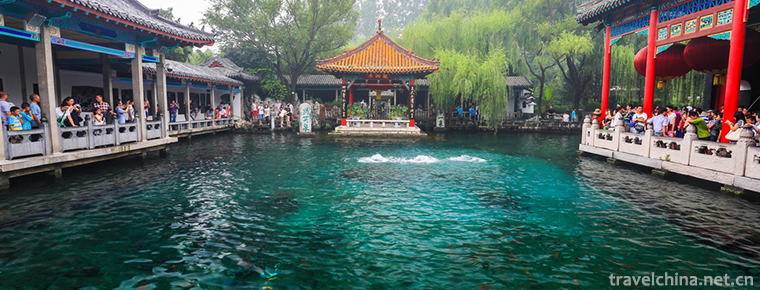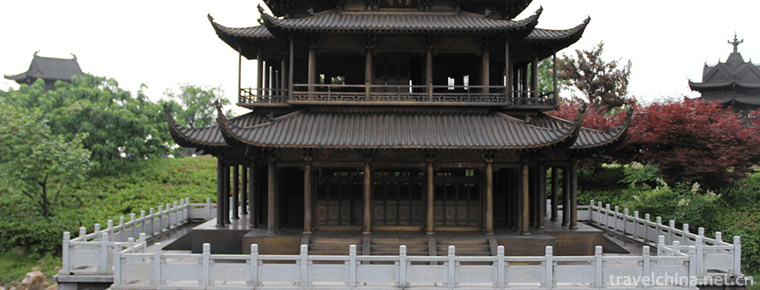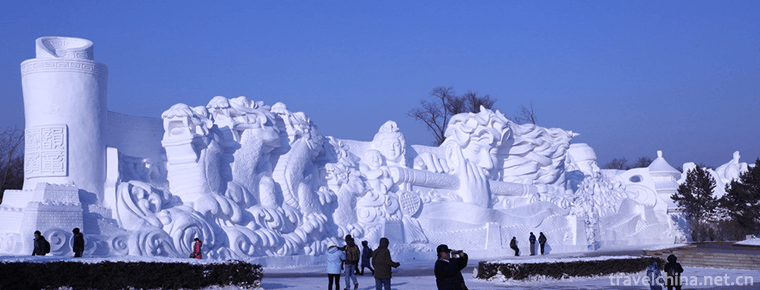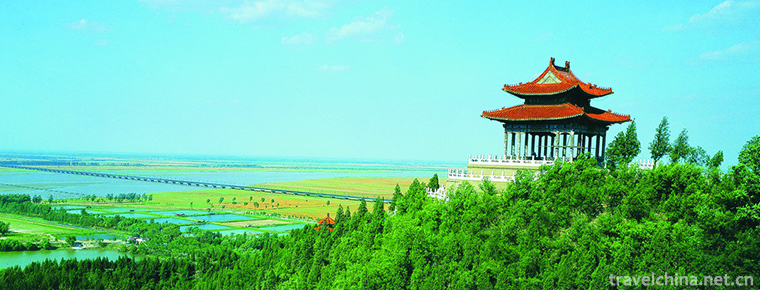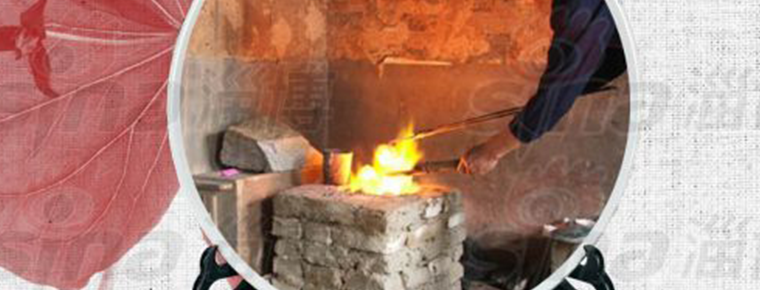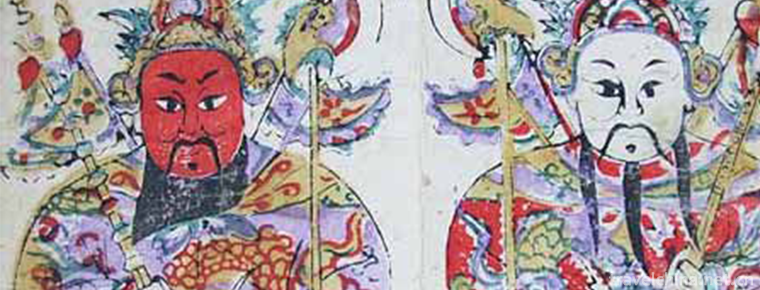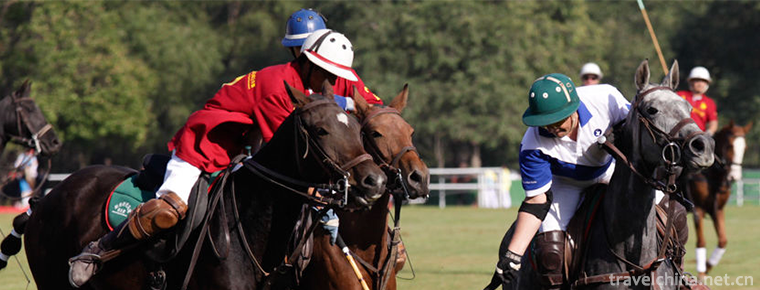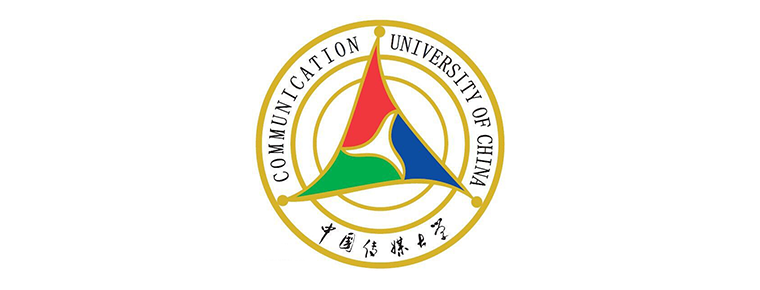Laiwu Bangzi
Laiwu Bangzi
Laiwu Bangzi, also known as Laiwu Bangzi, is a unique opera in China. It has a history of more than 200 years and is a wonderful flower in traditional Chinese local operas.
On June 7, 2008, Laiwu Bangzi declared by Laiwu City of Shandong Province was listed in the second batch of national intangible cultural heritage list with the approval of the State Council.
historical origin
Laiwu Bangzi's music in Shandong Province has distinct characteristics. Its singing style is grand and magnificent, high and rough, strong and straight, vigorous and unrestrained, the atmosphere is warm, the melody is plain and the line is smooth, and it has a strong local flavor and unique artistic charm. It is one of more than 300 kinds of Chinese operas, and it is a wonderful work of art with local characteristics nourished by Laiwu culture. In the hinterland of central Shandong with Laiwu as the center, there are few other folk operas spreading. For more than a hundred years, Laiwu Bangzi was the main form of local cultural activities, a kind local accent of the masses, with strong psychological cohesion. He is good at expressing the main drama, especially the comedy atmosphere. From this point of view, it represents the personality characteristics of the people in the straightforward and robust Taiyi Mountains. Therefore, it is deeply loved and welcomed by the people in Laiwu and its surrounding areas in Shandong Province, and is cordially called "Home Play".
The origin of Laiwu Bangzi's opera has three kinds of views: first, it evolved from Bangzi tune, which is popular in the southwestern part of Shandong Province; second, it was taught by Huiban; third, it was formed by the combination of Hui opera and Bangzi tune. Although these theories have certain forming factors, their origin is similar to that of Zanhuang Silk String in Hebei Province.
In 1790 (the fifty-fifth year of Qianlong reign of the Qing Dynasty), Anhui's "Three Qings" Hui troupe was transferred to Beijing to perform, and then the "Four Happiness", "Spring Platform", "and"Hechun"Hui troupes came to Beijing one after another, and many other Hui troupes also pioneered in this direction. Around 1850 (30 years of Daoguang), Laoyangchun of Huiban flowed into Tai'an along the canal and Shunyi Road, and later settled in Chengzizhai, southwest of Tai'an. Around this time, Qin Opera in Shaanxi and Gansu spread through Henan to Wenshang area, forming a distinctive local Bangzi Opera. This kind of Bangzi tune is rough and high, which is more in line with the local people's character and interest than the Hui Opera, so its influence is expanding. Faced with this grim situation, in order to win over the audience and benefit their own development, "Laoyangchun" gradually absorbed the art form of Bangzi Opera and began a new exploration. In quite a long performance activities, all the classes of the past dynasties coexisted with Hui Opera and Bangzi Opera, but they were not integrated into one. Actors could sing both the opera with this tone and the one with that tone. With the passage of time, more and more local actors, influenced by local dialects, customs and popular preferences, gradually changed to singing Bangzi Opera, the composition of Hui Opera is decreasing, and disappeared. The Bangzi tune absorbed by Huiban has also evolved into a unique Laiwu Bangzi. From the end of Guangxu period of Qing Dynasty to the outbreak of the War of Resistance Against Japan, the number of professional classes and clubs was considerable, the performance activities were very active, and the popular areas were expanding.
Laiwu Bangzi belongs to folk art in history. Laiwu, Taian and Xintai are the main active areas. Later, it became popular in the east to Rizhao, the west to Pingyin, the south to Linyi and the north to Jinan. However, in Laiwu, Taian, Xintai and Yiyuan, the most influential areas are Laiwu, Taian and Yiyuan. The ballad "Running broken legs, rubbing feet, and catching up with Modanzi (Laiwu Bangzi famous veteran artist) can be seen in its charm and influence.
In January 1954, Laiwu County, Shandong Province, set up the Laiwu County Folk Opera Troupe, which was renamed "Laiwu Bangzi Troupe" in 1956, so that the opera can be further developed and improved. In 1965, the troupe went to Beijing to report on the performance of "sending pigs". It was warmly received and highly appraised by leaders of the party and state leaders such as premier Zhou Enlai, chairman Zhu De, Peng Zhen, Xie Jianying and Yang Shangkun. In 1975, he gave tribute performances to the 26th anniversary kings of the founding of the people's Republic of China. In 1977, the "three fixed piling" went to the Canton Fair to perform for 130 countries and regions. At the beginning of 1982, he went to Huairen Hall and the Great Hall of the People to perform "Red Willows and Green Willows", which was again received by Peng Zhen, Kang Keqing and other leading comrades of the Central Committee. Among them, "Sandingzhuang" and "Red Willow and Green Willow" were moved to the screen by the studio, "Bayi" factory and Shandong film studio respectively. Several plays such as "Borrowing a Girl" were recorded by provincial and municipal TV stations successively. Among them, "Borrowing a Girl" was broadcast by CCTV.
Modern opera "Snow and Light on the 15th January" won the Shandong Excellent Engineering Award in 1995. In 1996, it participated in the National Exchange Performance of Bangzi Opera held by the Ministry of Culture in Xi'an, and won seven awards. In 1997, the modern drama "Snow Wild Style" won the 4th Shandong Excellent Engineering Award. Modern operas "Good Children and Good Daughters", "Soul of the Mountain" and "Fisherman" have won the Shandong Excellent Engineering Award successively. "Pushing Daughter-in-law" participated in the performance of rural minor drama in some provinces and cities in December 2000 at Chang'an Grand Theater, and in 2002 participated in the "National Star Award" excellent drama performance held by the Ministry of Culture in Beijing. Vice Premier Li Lanqing of the State Council went to watch it and gave a high appraisal .
Around 1850, Huiban entered Shandong through the canal and settled in the "Laoyangchun" class of Wang Shiyun's family in Xia Zhang Town, Tai'an County. It was one of the Huiban classes. Since then, Bangzi, who lived in Wenshang area, often performed on the same stage with Huidiao and gradually combined with it. In 1874, the "Xiaoyangchun" class was set up. In 1895, the "Changshun" class was set up in Laiwu Beishan, and then more than a dozen classes such as Jiqing were set up.
Laiwu County Folk Arts Troupe was founded in January 1954 and renamed Laiwu Bangzi Troupe in 1956. Since the founding of the people's Republic of China, the Laiwu Bangzi troupe has excavated, arranged, adapted and staged 384 traditional operas. 260 modern dramas have been adapted, transplanting and creating. Among them, "pig sending", "three Ding piling", "red willow green willow", and "borrowing a girl" are performing in Beijing's Huairen hall in Huairen, and are praised and received by the party and state leaders. In 1977, Sandingzhuang went to the Canton Fair to perform for friends from 130 countries and regions. Sandingzhuang and Red Willow and Green Willow were moved to the screen respectively. In 1990, the theatre troupe was appointed by the Ministry of Culture as the "National Advanced Unit of Modern Opera Editing and Performing". It is a member troupe of the National Annual Conference of Modern Opera. In 1992, "Pushing Daughter-in-law" participated in the national "the first group in the world" exhibition and won the prize. In December 2000, it participated in the national provincial and municipal small opera performance in Chang'an Grand Theater, which was highly praised by experts in the capital. In 2002, Li Lanqing, Vice Premier of the State Council, attended the "National Star Award Excellent Drama Exhibition" held by the Ministry of Culture in Beijing and gave high praise. The modern drama "Snow and Light on the 15th of the First Moon" won the "Excellent Engineering" Award in Shandong Province in 1995. In 1996, the play participated in the "National Excellent Drama Exchange Performance of Bangzi Opera" organized by the Ministry of Culture in Xi'an, and won seven awards. In 1997, the 4th Modern Drama "Snow Wild Style" won the "Excellent Engineering" Award of Shandong Province. In 1999, the modern drama "Good Children and Good Daughters" won the fifth "Excellent Engineering Award" in Shandong Province, the first prize in the performance of the sixth Shandong Cultural and Art Festival, and the second prize in the eighth "Chinese Population and Culture Award" in 2000. In 2001, the modern drama "Dashan Soul" won the sixth "Excellent Engineering" Award in Shandong Province, and the third prize in the repertoire in the 7th Shandong Cultural and Art Festival. In 2003, Modern Opera "Fisherman" won the 7th "Excellent Engineering" Award in Shandong Province.
Our troupe has always insisted on delivering operas to the countryside, with an average of over 300 performances per year. Traditional representative plays include Mu Guiying hanging in command, Borrowing Girls, Wang Hua Buying Dad, Wang Hua Xiashu, Wang Hua ascending the throne, Mu Kezhai, She Taijun's Ci Dynasty, 15th Guan, Forced Marriage, Sun An Moving Book and more than 30 others. Among them, 12 traditional plays such as Borrowing Girls were recorded and published by Qilu Audio-visual Press.
In order to meet the needs of the performance market, our group also organizes various large-scale performances of singing, dancing and advertising, which further broadens the performance market.
The present troupe has 70 performers, including 6 first-class actors and performers, 18 second-class actors and performers, and 28 third-class actors and performers.
In 2008, Laiwu Bangzi was selected as the second batch of national intangible cultural heritage list.
Major repertoire
Laiwu Bangzi includes Bangzi and Hui tone. According to the 1954 survey, there are 267 traditional plays of Laiwu Bangzi. Among them, there are 164 Bangzi operas and 103 Hui operas. The basic repertoire is called the eighteen editions of Jianghu. Among them, Lianglangshan is a Bangzi tune and Burning a Warship is an emblem.
Inheritance and protection
Early famous actors included Chen Fumei, Hu Dacai, Sun Yucai and Hu Qingsong. Since the founding of the People's Republic of China, Laiwu Bangzi has developed rapidly, and there have been three peak periods. In 1960s, the traditional operas such as "two wolf hill" and "Zhao Liandai borrow a girl" were compiled, and the modern drama "sending pigs" was staged. From the mid-1970s to the early 1980s, Sandingzhuang and Red Willows and Green Willows were compiled and performed in Jinjing. Among them, "Sandingzhuang", "Red Willows and Green Willows" and other plays have been made into films, and "Zhao Liandai borrows a girl" and other films have been recorded for television. Since the late 1980s, he has compiled and performed such plays as Snow Falling on the Yellow River, Pushing Daughter-in-law, Snow Lighting on the 15th January, Snow Wild Style, Good Children, Mountain Soul and Fisherman. In 2009, the large-scale modern clean government drama "A Thousand Miles of Child Travel" won five awards from the Propaganda Department of the Provincial Party Committee and the Provincial Department of Culture, and toured 17 cities in the province.
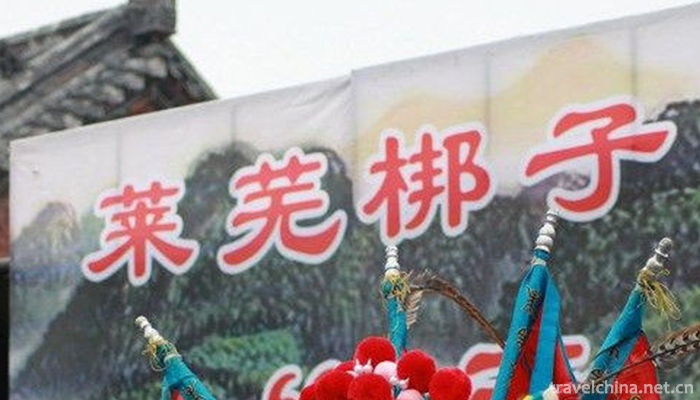
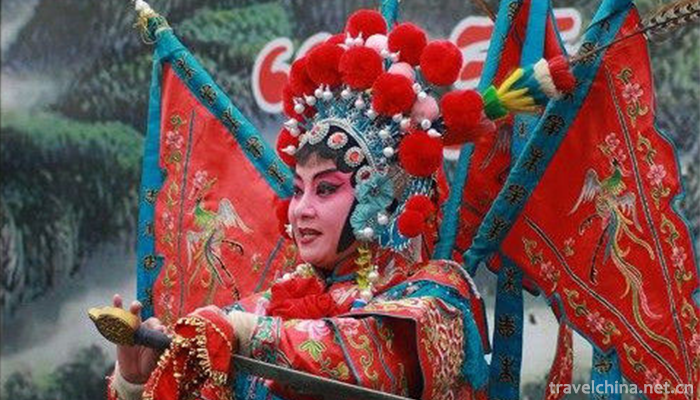
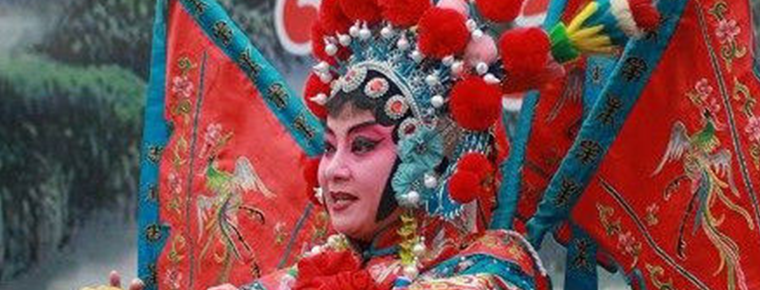
Laiwu Bangzi
-
yangshuo west street
West Street is nicknamed Foreigner's Street, located in Yangshuo County,
Views: 153 Time 2018-10-12 -
Alice tomato noodles
The Ali brand was born in 2001 and officially launched in 2005. The brand popularity and honor of Ali Juice Noodle series products are constantly improving
Views: 258 Time 2018-11-26 -
Ashatu Stonehenge Tourist Area Chifeng City Inner Mongolia Autonomous Region
Ashatu Stonehenge Tourist Area, Chifeng City, Inner Mongolia Autonomous Region Keshkten Stone Matrix (formerly Ashatu Stone Forest) is located in Keshkten Banner of Chifeng City
Views: 228 Time 2018-12-02 -
Jinan World First Spring Scenic Area
Jinan World No. 1 Spring Scenic Area, located in the center of Jinan City, Shandong Province, is a national AAAAA-level tourist attraction, national key park, advanced unit of national spiritual civil
Views: 202 Time 2018-12-08 -
Yueyang Tower and Junshan Island Scenic Area
Junshan Island, formerly known as Dongting Mountain, Xiangshan Mountain and Youyuan Mountain, is located in the territory of Yueyang City. It is an island in Dongting Lake, 800 li away from Yueyang To
Views: 167 Time 2018-12-12 -
Harbin Polarland
Harbin Polar Museum is the world's first polar entertainment park, one of the four major scenic spots of Harbin International Ice and Snow Festival, the national 4A-level tourist attraction
Views: 195 Time 2019-01-13 -
Zhengzhou Yellow River Scenic Spot
The Yellow River Scenic Spot is located 20 kilometers northwest of Zhengzhou City, capital of Henan Province, on the Bank of the Yellow River. It is situated on Weiyueshan Mountain in the South and Ta
Views: 268 Time 2019-03-18 -
Smelting Technology of Gold Chute Stone fill Stove
The smelting technique of gold chute rockfill stove was first seen in the history of Song Dynasty. Since the fourth year of Jingde in the Song Dynasty, Minister Pan
Views: 271 Time 2019-05-04 -
Liang Ping Wood New Year Print
Liangping Wood Printing New Year Painting belongs to Liangping's "Three Wonders" (Bamboo Curtain, New Year Painting and Lantern Opera), which is a kind of painting art drawn by the people in
Views: 207 Time 2019-05-13 -
Polo
Polo refers to a sport in which horses are riding and polo clubs are used to hit the ball. In ancient China, Polo was called "hitting the bow". It was invented in the Han Dynasty and flouris
Views: 154 Time 2019-05-15 -
Communication University Of China
Communication University of China ( Communication University of China Referred to as "Zhong Chuan", located in the capital city. Beijing Yes. Ministry of Education of the People's Republic o
Views: 157 Time 2019-12-03 -
Wawu mountain
Wawu Mountain National Forest Park is under the administration of Hongya County, Meishan City, along the western edge of Sichuan Basin. It is 180 km away from Chengdu and covers an area of 1.05 million mu.
Views: 322 Time 2020-10-15
